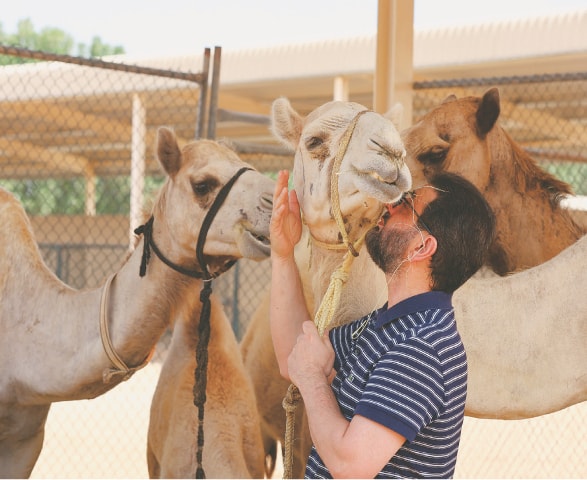
DUBAI: Having led the world’s first cloning of camels in 2009, Nisar Wani is now replicating a few dozen a year at a Dubai lab — a big business in the Gulf region where camels are cherished and can earn huge sums in beauty and racing contests.
“We collect these eggs from the ovaries of slaughtered animals. We have to mature them in the lab for 24 hours before they reach the stage where we can use them for the cloning process,” Wani said.
Reproductive cloning of animals uses a process called somatic cell nuclear transfer.
DNA is removed from a camel egg cell and replaced with DNA from a frozen body cell of a camel prized for some quality such as speed or beauty. The egg then develops into an embryo with no sperm needed.
Animal cloning is, however, time-consuming with low success rates.
“From a hundred embryos that we transfer, we can have five to ten pregnancies, and sometimes maybe three to six babies born,” said Wani, originally a veterinarian who has a PhD in animal reproduction.
The Reproductive Biotechnology Centre in Dubai works to preserve the cells of and reproduce elite racing camels, beauty contest winners, milking camels and prized males, Wani said.
It also uses interspecies cloning technology to preserve threatened species.
Published in Dawn, May 26th, 2023















































Dear visitor, the comments section is undergoing an overhaul and will return soon.